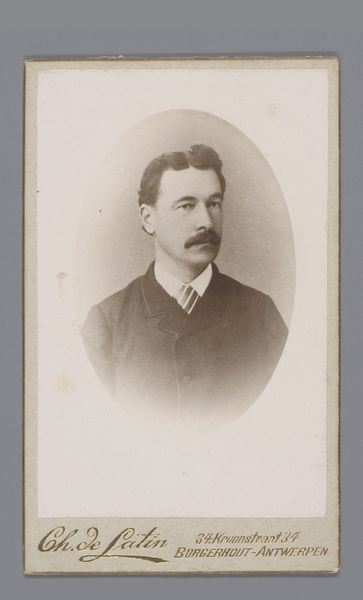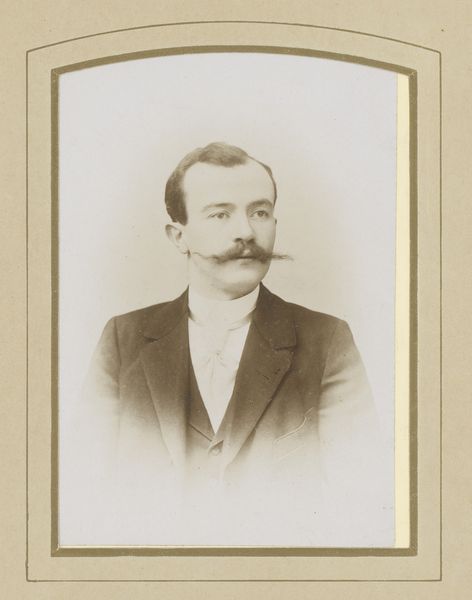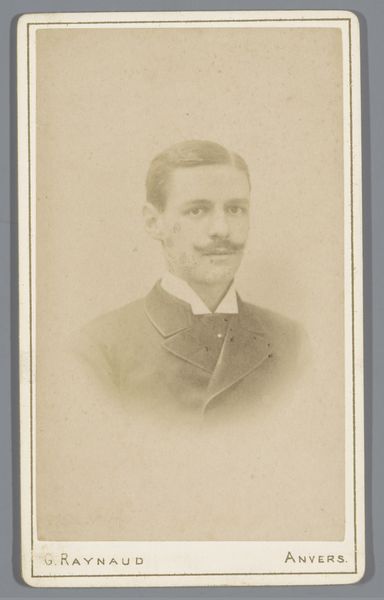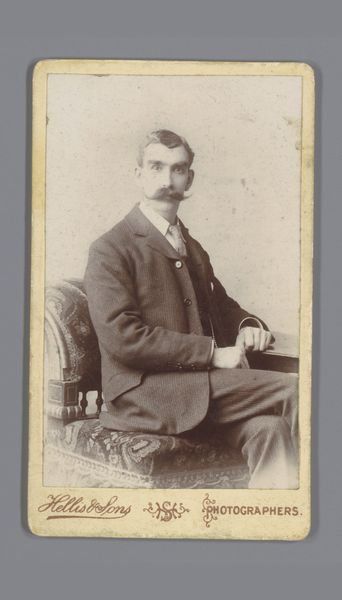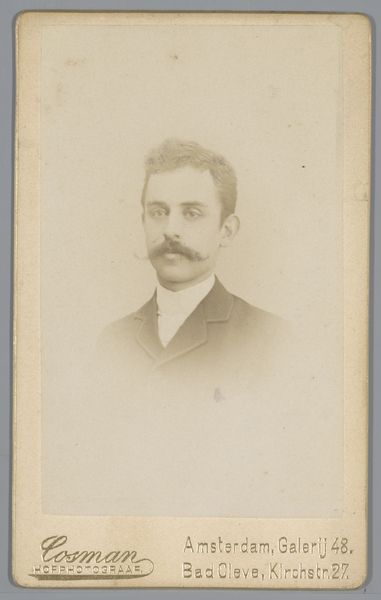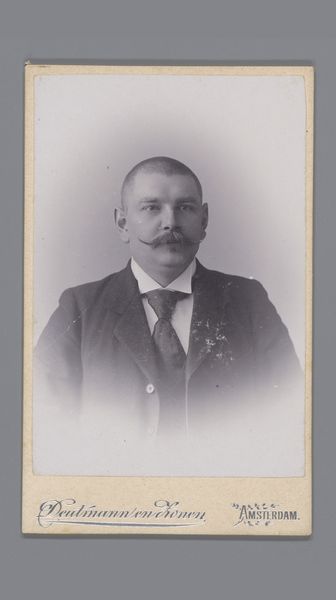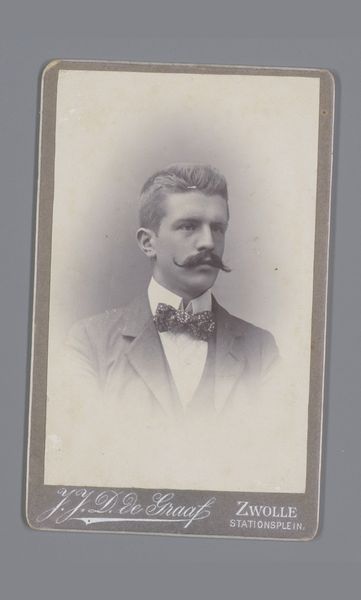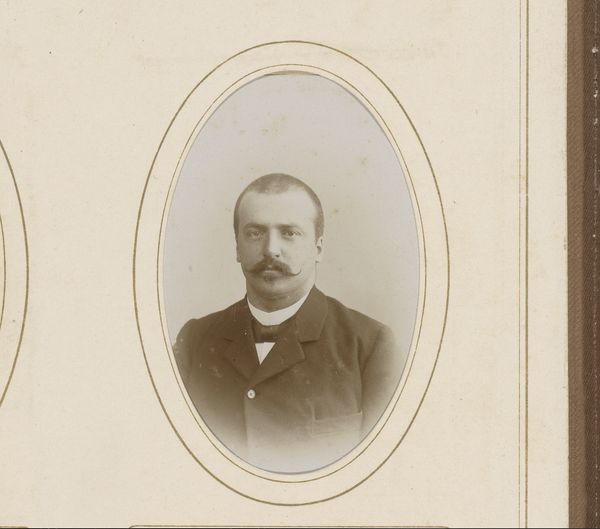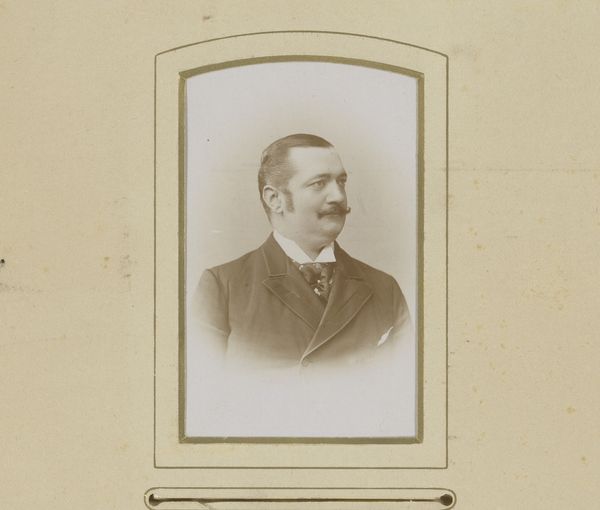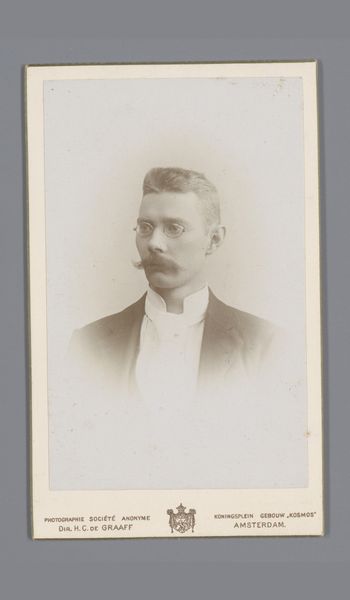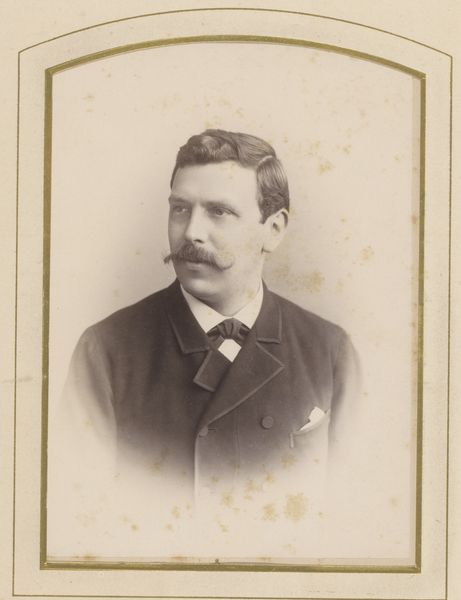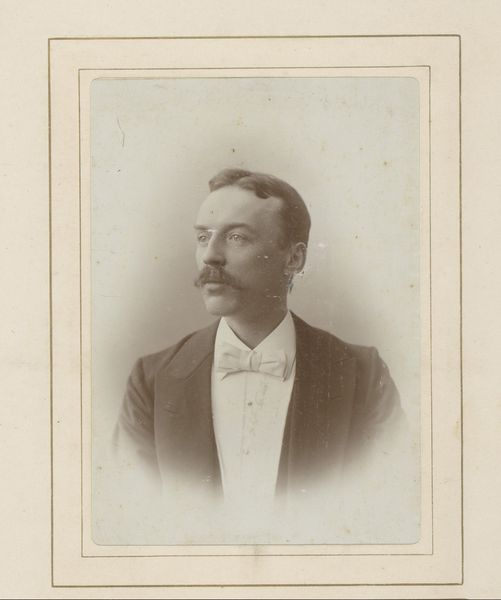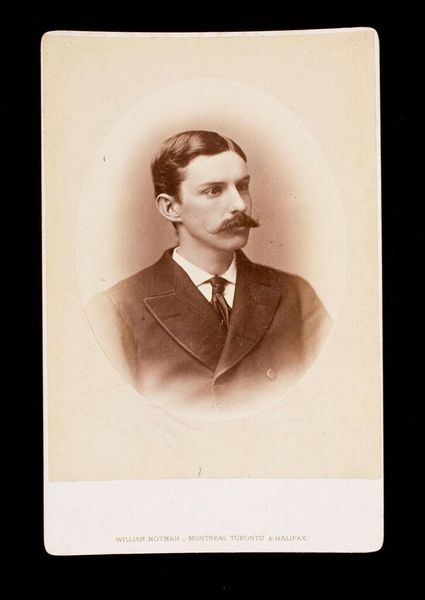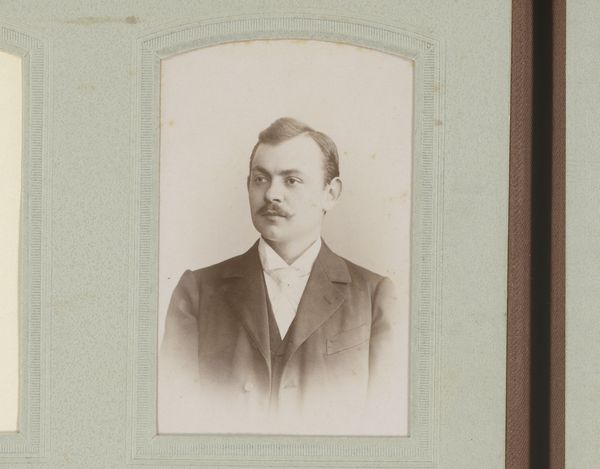
photography, gelatin-silver-print
#
portrait
#
self-portrait
#
photography
#
gelatin-silver-print
#
realism
Dimensions: height 105 mm, width 65 mm
Copyright: Rijks Museum: Open Domain
This is an albumen print of an unknown, moustachioed man, made by J.H. v.d. Heijden in Antwerp. The albumen process, invented in 1850, involves coating a sheet of paper with egg white and then exposing it to light through a negative. Its popularity throughout the late 19th century reflected broader industrial developments in chemistry and optics. It was an efficient method for mass-producing images in a time before digital photography. The sepia tone, achieved through chemical development, lends a sense of timelessness to the subject. The smooth, glossy surface—characteristic of albumen prints—enhances the detail of the man's attire, meticulously groomed mustache, and confident gaze. The photograph is a fascinating material document of the late 19th century, reflecting wider social and economic shifts. The man in the portrait, dressed in a suit, represents the emerging middle class and their aspirations for social mobility. By understanding the history of photographic materials and processes, we recognize this portrait not just as an image, but as an artifact embedded with social and cultural meaning, challenging distinctions between art, craft, and industry.
Comments
No comments
Be the first to comment and join the conversation on the ultimate creative platform.
